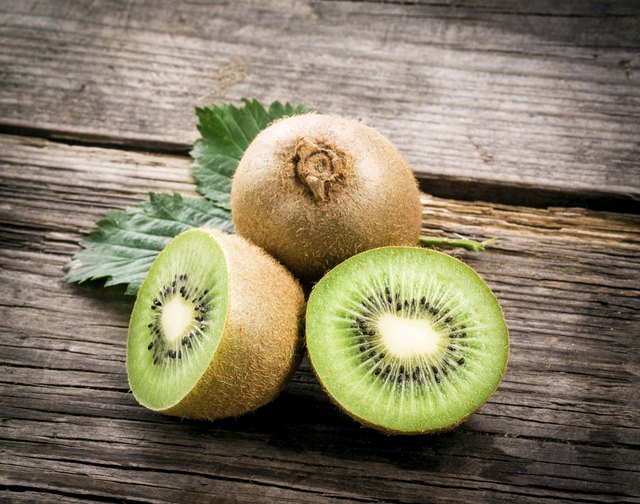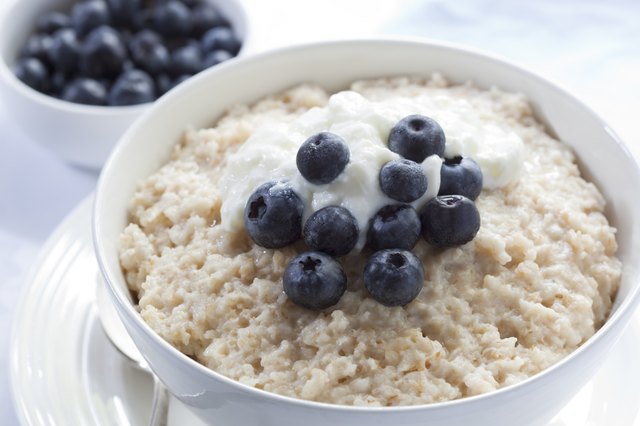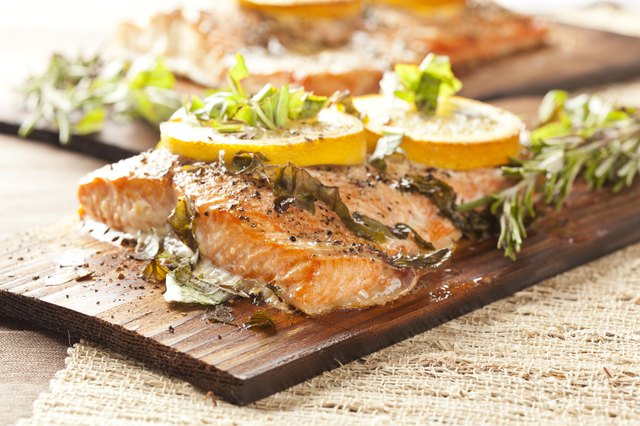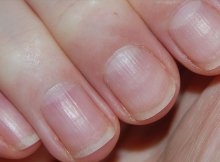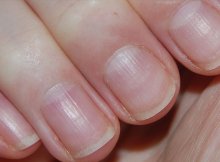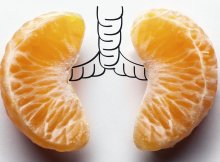11 nutrients Americans don't get enough
Advertisements
Research shows that the American diet is far from healthy. In fact, we lack some important nutrients that our bodies need to function properly and keep healthy. Keep reading the list of 11 nutrients that are severely lacking in the American diet and find out what you can do to make sure you get the nutrients you eat every day. One in four Americans can't get enough vitamin C. This important nutrient is responsible for making collagen, improving iron absorption and keeping our immunity first-class. Vitamin C is also an antioxidant, so it helps the body fight free radicals. Some studies, though not definitive, have shown that vitamin C reduces the risk of cancer, heart disease and age-related macular degeneration. So, how much do you need? It should reach 75 mg in women and 90 mg / day in men. You can find vitamin C in many fruits and vegetables, including oranges, grapefruits, peppers, strawberries, cantaloupes, kiwifruit, tomatoes and baked potatoes. Some drinks are also fortified with vitamin C.
Credit: Anna libiyeva / iStock / Getty Images Credit: Kati Molin / iStock / Getty Images Advertisements fat soluble nutrients, vitamin E plays an antioxidant role, delays free radicals, also helps to maintain the immune system, maintain vascular health, prevent blood clots. There are eight forms of vitamin E, but you need to pay attention to alpha tocopherol. What dose should you take every day? Men and women need 15 mg of vitamin e a day, but 60% of Americans don't get enough. Vegetable oils, such as sunflower oil and olive oil, nuts, seeds and cereals, are important sources of vitamin E. A small amount of vitamin E can also be found in fruits and vegetables such as spinach, mango and avocado. Vitamin D can reduce inflammation, maintain bone health, enhance immunity, and help reduce emotional disorders. The problem is that vitamin D is not found in many foods, mainly high-fat fish, fortified milk and juice. So it's no surprise that 70% of Americans don't get enough vitamin D from their diet, even when they eat fortified foods and supplements. Exposure to sunlight is the main endogenous source of vitamin D, but age, sunscreen use and skin color may limit many people's exposure and absorption of this essential vitamin. The Institute of medicine currently recommends 600 micrograms a day, although some experts recommend a higher intake of 1000-2000 micrograms. If you don't go out for 15 minutes a day, or if you regularly eat foods rich in vitamin D, you may want your doctor to check your vitamin D levels. If you have low vitamin D levels in your blood, talk to your doctor about taking USP or NSF certified supplements, such as natural supplements or village life supplements (there are also vegetarian options). correlation: 9 ways to help avoid vitamin D deficiency 6. Vitamin A is important for many reasons: bone growth, healthy vision, immunity, reproductive capacity and normal functions of heart, lung and other organs. Unfortunately, more than a third of Americans (34%) don't get enough vitamin A, which would be around 75% if it wasn't for fortified foods and supplements. Vitamin A is found in food in two forms: preformed (retinol) and carotenoids. Eggs, some fish, leafy green vegetables, orange and yellow fruits and vegetables (pumpkins, peppers, mangoes, cantaloupes) and fortified milk and cereals are all important sources of vitamin A. Credit: Paul Katz / photodisc / Getty Images correlation: high potassium fruit and vegetable folic acid is naturally found in fruits (oranges and melons), vegetables (dark green leafy vegetables), nuts, beans and many grains (pasta, cereal, bread), all of which contain folic acid. Despite the predominance of fortified foods, there are still some populations at greater risk of folic acid deficiency. These risk groups include women aged 14-30 (especially before and during pregnancy) and people with certain gastrointestinal diseases, including Crohn's disease, inflammatory bowel disease and celiac disease. Folate is important because it helps make DNA and healthy cells, including red blood cells. Therefore, it is very important for pregnant women to take enough folate. Your doctor may prescribe a prenatal vitamin, including this important nutrient. Credit: correlation: the 20 most overvalued supplements Advertisements correlation: micronutrients may be the missing link in weight loss? Credit: Javier Sanchez mingolens / iStock / Getty Images 2. There are two different kinds of dietary fiber: soluble and insoluble. Soluble fibers are found in nuts, oatmeal, lentils, apples, strawberries, seeds, oranges, carrots, and beans. It lowers cholesterol levels and slows digestion, which may help balance blood sugar. This delay can also make you feel fuller for longer periods of time, helping to control weight. Insoluble fiber, mainly in whole grains and seeds, supports intestinal health and digestion. Although fiber is found in rich foods, we don't have enough in our diet. Men's goal is 38 grams a day, women's goal is 25 grams a day, but the average American can only eat 15 grams of fiber a day. A study published in the November 2013 issue of the Journal of nutrition showed that magnesium can help people live longer. The researchers followed more than 7000 men and women (55-80 years old) and found a 34% reduction in heart disease and cancer mortality among those who consumed the most magnesium per day. Magnesium is involved in more than 300 metabolic reactions and contributes to a wide range of body functions, including muscle and nerve functions, blood glucose control, blood pressure, bone development, etc. Unfortunately, 45 percent of Americans - almost half of the population - don't get enough magnesium. So, which foods contain magnesium? Nuts (pistachios and almonds), fruits and vegetables (spinach, bananas, avocados), beans, lentils and whole grains (oatmeal and whole wheat bread) are all important sources of magnesium.
4. Vitamin E

7. Iron is an important mineral that our bodies need to make humming and myoglobin, which helps transport oxygen from the lungs to other parts of the body. Iron is also part of many enzymes that help our bodies digest food and perform many other functions. Iron deficiency is the most common symptom of young women. Although fatigue is the most common symptom, difficulties in pregnancy and infant health are other potential problems. There are two kinds of iron in the diet: heme and non heme. Heme iron is better absorbed by the human body and exists in animal sources such as meat, poultry and fish, while non heme iron exists in plants and dairy products such as eggs and fruits, vegetables, nuts and grains. How much iron does your body need? Men need 8 mg a day, women 18 mg a day, pregnant women 27 mg a day. Potassium balances the effect of sodium on blood pressure, reduces the risk of bone loss and kidney stones, builds protein and muscle, and maintains a safe acid-base balance in our body. Men and women are advised to eat 4700 milligrams of potassium a day, but Americans don't have enough. Potassium can be used in a variety of food sources, including fruits (Citrus, kiwi, apricot, Hami melon), vegetables (sweet potato, pea, broccoli), dairy products, nuts, meat and poultry (beef, chicken, Turkey) and fish (COD, brandy, red beans, red beans, red beans, broccoli). Salmon)
10. Omega-3 fatty acids can reduce the risk of heart disease, help control rheumatoid arthritis, depression, asthma, and even help delay Alzheimer's disease. There are three types of ω - 3: α - linolenic acid (ALA), which is transformed from human body into eicosapentaenoic acid (EPA) and docosahexaenoic acid (DHA). EPA and DHA are mainly found in fatty fish and algae, while ala is found in walnut and flax. The problem is that most of us get half of the omega-3 fatty acids we need for optimal health. If you don't eat at least two servings of fish a week, choose a USP or NSF certified strength and purity supplement, such as omax3 or the new chapter wholemega fish oil. This way, you can be sure that the supplements you are taking are free of any potential contaminants. There are 17 reasons why you may need more omega-3 fatty acids in your diet. Almost 40% of Americans don't get enough calcium, which is necessary for strong bones and teeth, muscle movement, nerve signals from the brain to other parts of the body and healthy blood vessels. The current recommendation is for men and women to take 1000 milligrams of calcium a day. Women aged 51 or over should take 1200 milligrams a day, although some researchers argue that reexamination based on the new study may reduce these recommendations. There are several food sources that can help you meet these daily calcium needs: dairy products (yogurt, milk, cheese), calcium fortified orange juice, soymilk, rice milk, canned salmon, almonds, kale, broccoli, cabbage, grains, and fortified grains. If you don't eat dairy products and your diet lacks green food, you may want to consider adding a little bit every day to help meet your needs.
What do you think? Do you know that such a large proportion of Americans suffer from malnutrition? Do you have your doctor check your key nutrient levels, such as vitamin D? Do you take supplements or multivitamins every day? What do you eat and do you think they help you keep healthy? If you do not take any vitamin supplements, please join the conversation and leave a comment below to let us know why.
